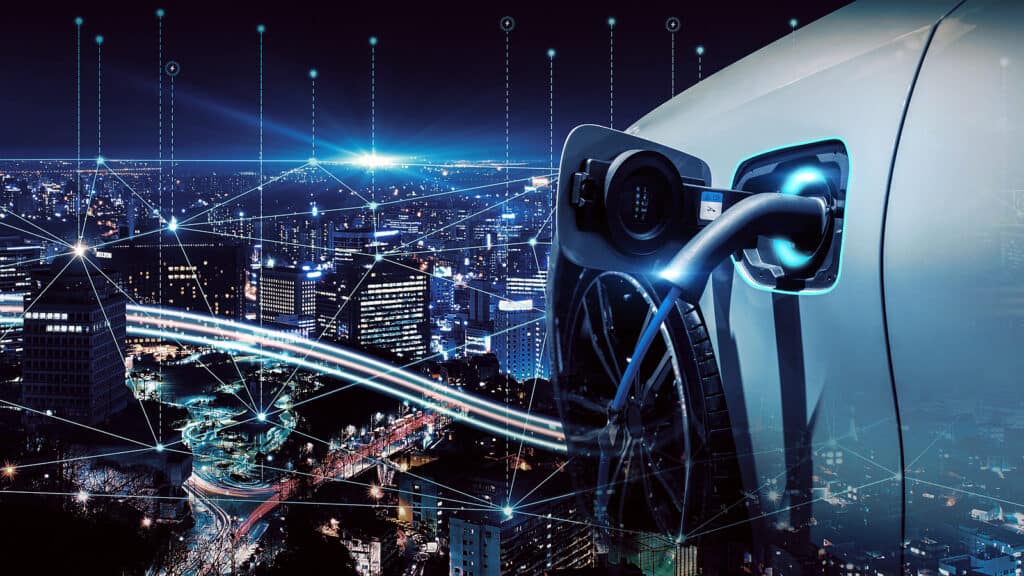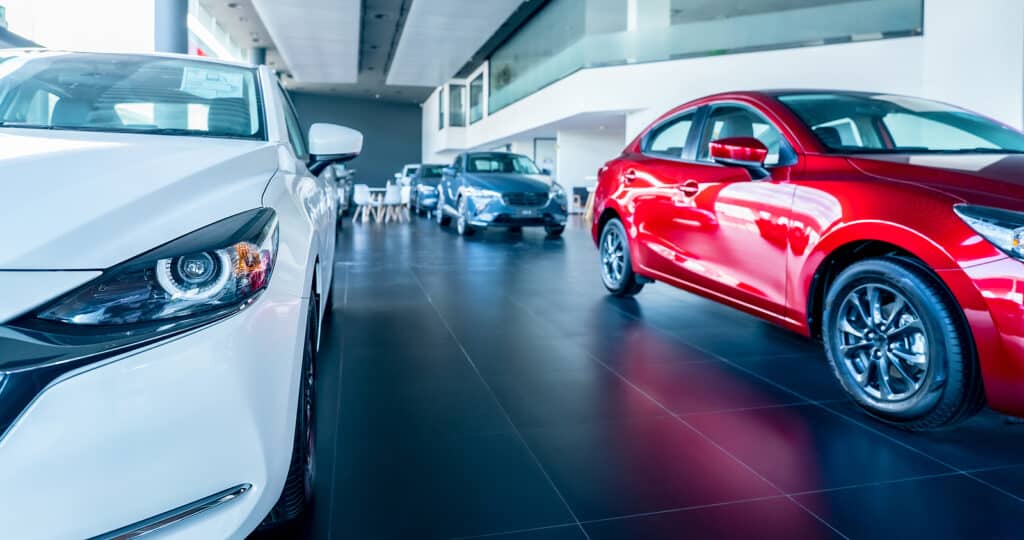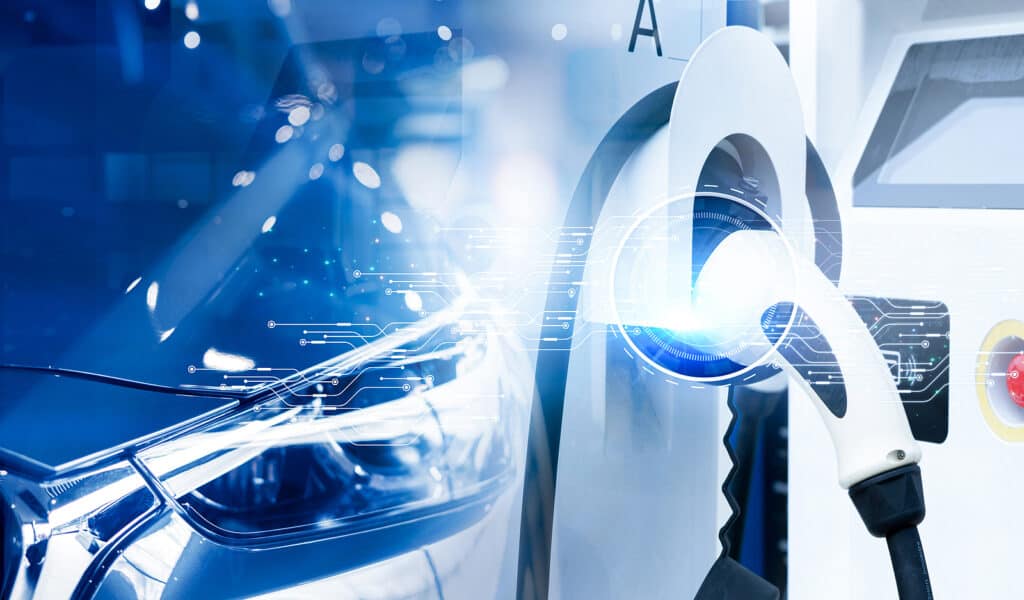The Future of Electric Vehicles: What to Expect and How it Can Help
Electric vehicles (EVs) have been around for over a century, but they are now gaining popularity as the world shifts toward sustainable energy. The global demand for EVs is on the rise as people seek to reduce their carbon footprint, save money on fuel, and experience the convenience of driving an electric car. However, as the market continues to grow, it is important to consider what the future of electric vehicles will look like and how to prepare for it.
This article will explore the latest developments in the world of electric vehicles, including advancements in technology, infrastructure, and regulations. We will also discuss the challenges that the industry faces, such as battery production and charging, and how these challenges are being addressed. Finally, we will provide some tips on how to prepare for the future of electric vehicles.
What is an Electric Vehicle (EV)?
An Electric Vehicle (EV) is a revolutionary mode of transportation that operates primarily or entirely on electricity as its power source. Unlike conventional Internal Combustion Engine (ICE) vehicles that rely on gasoline or diesel for propulsion, EVs employ a cutting-edge technology that harnesses electrical energy from an external source. This energy is then efficiently stored in high-capacity batteries specially designed for EVs. When in operation, these stored electric charges are channeled into powerful electric motors that drive the vehicle's wheels, enabling smooth and eco-friendly mobility.
Electric vehicles come in various forms, ranging from passenger cars to buses, trucks, scooters, and even bicycles, each adapted to meet diverse transportation needs across different industries. The driving force behind this paradigm shift in the automotive industry is the compelling environmental and economic advantages of EVs over conventional vehicles.
Current State of Electric Vehicles
The electric vehicle (EV) industry has undergone a remarkable transformation since the advent of modern electric cars in the early 2000s. The market has witnessed a steady and impressive growth trajectory, with the International Energy Agency (IEA) reporting a substantial milestone: by the end of 2020, there were already over 10 million electric cars navigating the world's roads. This remarkable figure is just a glimpse of the enormous potential, as projections indicate a staggering surge, with the number of future of electric vehicles in world estimated to reach a remarkable 145 million by the year 2030.
Several key factors have coalesced to propel the remarkable growth of the electric vehicle market. A driving force behind this transformation lies in continuous and rapid technological advancements. Over the years, extensive research and innovation have led to substantial improvements in EV efficiency, range, and battery technology. These developments have translated into more accessible and affordable electric vehicles, appealing to a broader spectrum of consumers.
Advancements in Technology
One of the main reasons why electric vehicles are gaining popularity is the rapid advancements in technology. The first electric cars were developed in the early 1900s, but it was not until the 21st century that they began to catch on. This was due in part to improvements in battery technology, which allowed for longer driving ranges and faster charging times.
Today, the latest electric cars can travel over 300 miles on a single charge and can be charged in less than an hour using a fast-charging station. Additionally, many EVs come with features such as regenerative braking, which captures energy lost during braking and uses it to recharge the battery, and advanced driver assistance systems (ADAS), which make driving safer and more efficient.
One of the most exciting developments in electric vehicle technology is the rise of autonomous driving. Autonomous vehicles are cars that can drive themselves without human intervention, using a combination of sensors, cameras, and software. While fully autonomous cars are still a few years away, many electric vehicles already come with partial autonomous driving features such as lane departure warning, automatic emergency braking, and adaptive cruise control.

Infrastructure and Charging
Another key factor in the growth of electric vehicles is the development of infrastructure and charging networks. In the early days of EVs, charging was a major issue, as there were very few charging stations available. However, in recent years, governments and private companies have invested heavily in building charging infrastructure, making it easier for EV drivers to travel long distances and charge their vehicles.
In the US, for example, the government has launched the “EV Everywhere” program, which aims to make EVs as convenient and affordable as gasoline-powered vehicles. As part of this program, the Department of Energy has funded the installation of over 20,000 charging stations across the country. Other countries, such as Norway and China, have also invested heavily in EV infrastructure, with Norway having the highest number of EVs per capita in the world.
While charging infrastructure has come a long way, there are still some challenges that need to be addressed. One of the biggest issues is the lack of fast-charging stations, which can charge an EV in less than an hour. Additionally, many EV owners do not have access to a home charger, which can make charging inconvenient. However, companies such as Tesla are working on solutions to these issues, such as the installation of more fast-charging stations and the development of portable chargers.

Challenges and Solutions
While electric vehicles have come a long way in recent years, there are still some challenges that the industry faces. One of the biggest challenges is the production of batteries. EVs require large, high-capacity batteries, which are currently expensive to produce and have a limited lifespan. Additionally, the production of batteries requires a significant amount of energy and resources, which can be harmful to the environment.
To address these challenges, researchers are working on developing new battery technologies that are more efficient and sustainable. One example of this is solid-state batteries, which use a solid electrolyte instead of a liquid one. Solid-state batteries have the potential to be safer, more energy-dense, and longer-lasting than traditional lithium-ion batteries. However, solid-state batteries are still in the development stage and have not yet been commercialized.
Another challenge that the industry faces is the availability of rare earth metals, which are used in the production of batteries and electric motors. Many of these metals, such as cobalt and lithium, are primarily mined in developing countries, where environmental and labor standards are often low. Additionally, the supply of these metals is limited, which could lead to shortages and price increases in the future.
To address this issue, researchers are working on developing new battery technologies that use less or no rare earth metals. For example, sodium-ion batteries, which use sodium instead of lithium, have the potential to be cheaper and more sustainable than lithium-ion batteries.
Finally, the charging infrastructure for electric vehicles still needs to be expanded and improved. While there are now many charging stations available, they are not always conveniently located or easy to use. Additionally, the speed of charging is still a barrier for some drivers, as it can take several hours to fully charge an EV using a standard charger.
To address these challenges, companies are investing in the development of new charging technologies, such as wireless charging and ultra-fast charging. Additionally, some companies are working on developing a network of portable chargers that can be easily deployed in areas without charging infrastructure.
The Future of Electric Vehicles: What to Expect
The future of electric vehicles (EVs) holds immense promise, with a plethora of advancements and developments poised to shape the transportation landscape. As we move forward, several key trends and innovations are expected to drive the widespread adoption and integration of electric vehicles into our daily lives.
Increased Driving Range
One of the primary concerns for potential EV adopters has been the driving range. However, advancements in battery technology are addressing this issue head-on. Researchers and manufacturers are continually striving to enhance the energy density of batteries, allowing for longer driving ranges on a single charge. In the future, we can expect to see electric vehicles capable of covering even greater distances, alleviating range anxiety and making them more practical for long-distance travel.
Faster Charging
The time required to charge electric vehicles has been a significant consideration for consumers. Fortunately, improvements in charging infrastructure and battery technology are set to revolutionize the charging experience. Ultra-fast charging stations are being deployed, capable of providing a substantial charge in just a few minutes. Additionally, advancements in battery chemistry are leading to faster-charging batteries, making charging an EV as convenient as refueling a traditional car.
Cost Reduction
As electric vehicle technology becomes more mainstream, economies of scale will lead to cost reductions. Currently, the upfront cost of purchasing an electric vehicle is higher than that of a conventional vehicle, primarily due to battery expenses. However, as production volumes increase and battery prices decrease, the overall cost of owning an EV is expected to become more competitive with traditional vehicles.
Diverse EV Models
The electric vehicle market will continue to diversify, offering an array of models tailored to different consumer preferences and needs. From compact city cars to luxurious SUVs and high-performance sports cars, manufacturers are expanding their electric vehicle lineups to cater to various segments of the market. This variety of options will provide consumers with more choices and the ability to select an electric vehicle that aligns with their lifestyle and requirements.
Autonomous Driving and Connectivity
The integration of electric vehicles with autonomous driving technology is on the horizon. As self-driving technology advances, electric vehicles are likely to adopt these capabilities, enhancing safety and efficiency. Moreover, electric vehicles are expected to be at the forefront of the connected car revolution, with seamless integration of smart features, internet connectivity, and advanced infotainment systems.
Environmental Impact
The transition to electric vehicles is a vital component of global efforts to combat climate change and reduce greenhouse gas emissions. As the automotive industry embraces electric mobility, we can expect to witness a significant reduction in air pollution and dependence on fossil fuels. With renewable energy sources increasingly powering electric grids, EVs will become even more environmentally friendly, further contributing to a sustainable future.
Supporting Infrastructure
The growth of electric vehicles will necessitate the expansion and improvement of charging infrastructure. Governments and private entities are investing in building charging networks, including fast-charging stations at strategic locations such as highways, urban centers, and public spaces. Additionally, smart charging solutions and vehicle-to-grid (V2G) technology will enable a more efficient and dynamic management of electricity resources.
Sustainable Materials
The electric vehicle industry is also exploring sustainable materials for vehicle construction. From eco-friendly interior materials to lightweight and recyclable components, manufacturers are striving to reduce the environmental impact of electric vehicle production, making the entire life cycle of EVs more environmentally friendly.
How the Rise of Electric Vehicles Can Help
The increasing adoption of electric vehicles (EVs) holds tremendous potential in addressing environmental challenges and driving positive change. Here are some key ways electric vehicles can significantly contribute to reducing carbon emissions, enhancing energy efficiency, and improving air quality:
Reducing Carbon Emissions
One of the most compelling advantages of electric vehicles is their capacity to curb greenhouse gas emissions. While it is true that the manufacturing process of EVs and their batteries carries a carbon footprint, their overall lifecycle emissions are considerably lower than those of internal combustion engine (ICE) vehicles. This is especially true when electric vehicles are charged with electricity sourced from renewable energy. As renewable energy becomes more prevalent, the carbon footprint of electric vehicles continues to shrink, making them an essential component of global efforts to combat climate change.
Energy Efficiency
Electric vehicles exhibit remarkable energy efficiency when compared to conventional gasoline-powered vehicles. They are capable of converting over 77% of the electrical energy drawn from the grid into power at the wheels. In contrast, ICE vehicles convert a mere 12% to 30% of the energy stored in gasoline into usable power. This substantial disparity in energy efficiency highlights the superior performance of electric vehicles, contributing to reduced energy waste and a more sustainable transportation system.
Improving Air Quality
Electric vehicles play a pivotal role in mitigating air pollution, particularly in densely populated urban areas. Unlike ICE vehicles, which emit exhaust fumes containing harmful pollutants, electric vehicles produce zero tailpipe emissions. The elimination of tailpipe emissions significantly contributes to better air quality, leading to cleaner cities and healthier environments for residents. The reduction of air pollutants can help alleviate respiratory issues and other health problems associated with poor air quality.
Noise Reduction
In addition to mitigating air pollution, electric vehicles also offer a quieter and more serene urban environment. The absence of noisy internal combustion engines translates into reduced noise pollution, making cities and neighborhoods more tranquil and conducive to a better quality of life for residents.
Energy Diversity and Security
Embracing electric vehicles promotes energy diversity and enhances energy security. By relying on electricity from various sources, including renewables and nuclear power, EVs reduce the dependence on fossil fuels and the geopolitical risks associated with their extraction and transportation. This diversification contributes to a more stable and resilient energy landscape.
Preparing for the Future of Electric Vehicles
As the electric vehicle (EV) market experiences rapid expansion, it becomes increasingly crucial for individuals and businesses to embrace the shift towards electric mobility. To ensure a seamless transition into the future of transportation, here are comprehensive tips for preparing for the EV revolution:
In-depth Education about Electric Vehicles
Take the time to delve into the realm of electric vehicles and acquire a comprehensive understanding of their different types, features, and benefits. Research the available incentives, such as tax credits and rebates, that may be applicable in your region to make informed decisions. Familiarize yourself with the charging infrastructure in your area, including the locations and types of charging stations, to ensure you can effectively plan your charging needs.
Home Charger Installation
If you own or plan to purchase an electric vehicle, consider installing a home charging station. Home chargers provide convenience and cost-effectiveness, allowing you to charge your EV overnight while taking advantage of lower electricity rates. Many utility companies offer rebates or incentives for home charger installation, making it a financially attractive option.
Embrace Solar Power
Pairing your home charger with solar panels is a sustainable and forward-thinking approach. By utilizing solar energy to power your electric vehicle, you can significantly reduce your carbon footprint and achieve greater energy independence. Over time, the investment in solar panels can lead to substantial long-term savings on electricity bills.
Advocacy for EV Infrastructure
Be an active advocate for electric vehicle infrastructure in your community. Encourage your local government to invest in the development of charging stations, public charging points, and charging networks. Additionally, support businesses that are taking steps to invest in EV infrastructure, such as hotels, shopping centers, and workplaces that offer charging facilities. By advocating for expanded EV infrastructure, you contribute to the growth of a more EV-friendly environment.
Consider Electrifying Fleet Vehicles
For businesses and organizations, explore the possibility of electrifying your fleet vehicles. Many companies are already embracing electric vehicles for their fleets due to the economic and environmental benefits. Switching to electric fleets not only demonstrates corporate responsibility but can also lead to significant cost savings on fuel and maintenance over time.
Lease or Purchase an Electric Vehicle
If you are in the market for a new vehicle, seriously consider choosing an electric vehicle. EVs are becoming increasingly affordable as battery costs decrease and more models become available. The long-term savings on fuel and maintenance costs, coupled with the potential incentives, make electric vehicles a compelling and sustainable choice.
Invest in Electric Bikes and Scooters
As urban transportation evolves, consider incorporating electric bikes and scooters into your commuting options. Electric bicycles and scooters offer eco-friendly alternatives for short-distance travel, reducing the dependency on cars and enhancing overall mobility options.
Other Developments in the EV Industry
Electric buses and trucks
While passenger cars make up the majority of electric vehicles on the road, there is also a growing market for electric buses and trucks. These vehicles offer many of the same benefits as passenger cars, including reduced emissions and lower operating costs.
Vehicle-to-grid technology
Vehicle-to-grid (V2G) technology allows electric vehicles to send power back to the grid when they are not being used. This can help to balance the grid during times of high demand and reduce the need for additional power plants.
Shared mobility
Shared mobility services, such as car-sharing and ride-hailing, are becoming increasingly popular. Many of these services are now using electric vehicles, which can reduce emissions and operating costs.
Second-life batteries
When EV batteries reach the end of their useful life, they can still be used for other purposes, such as energy storage for homes and businesses. This can extend the life of the batteries and reduce waste.
Conclusion
The future of electric vehicles is bright, with rapid advancements in technology, infrastructure, and regulations. While there are still some challenges that need to be addressed, the shift toward sustainable transportation is inevitable.
By preparing for the future of electric vehicles, individuals and businesses can benefit from the convenience, cost savings, and environmental benefits that electric vehicles offer. By staying informed, supporting EV infrastructure, and considering the purchase of an electric vehicle, you can be a part of the transition toward a more sustainable transportation system.
Sources
- US Department of Energy. “Electric Vehicle Basics.” https://www.energy.gov/eere/electricvehicles/electric-vehicle-basics
- California Air Resources Board. “Zero Emission Vehicle (ZEV) Program.” https://ww2.arb.ca.gov/resources/fact-sheets/zero-emission-vehicle-zev-program
- National Renewable Energy Laboratory. “Solid-State Batteries: An Overview.” https://www.nrel.gov/transportation/solid-state-batteries.html
- Forbes. “What Are Sodium-Ion Batteries and How Do They Work?” https://www.forbes.com/sites/arielcohen/2020/12/23/what-are-sodium-ion-batteries-and-how-do-they-work/?sh=721b74f239ef
- Inside EVs. “EV Everywhere: DOE Goal is To Make EVs as Convenient and Affordable as Gasoline Cars.” https://insideevs.com/news/331688/ev-everywhere-doe-goal-is-to-make-evs-as-convenient-and-affordable-as-gasoline-cars/
- “What is the future of electric cars” – https://www.progressive.com/lifelanes/on-the-road/future-of-electric-cars/
- The Future of Electric Vehicles: Hitting the Backroads and More – https://www.simplilearn.com/future-of-electric-vehicle-article

